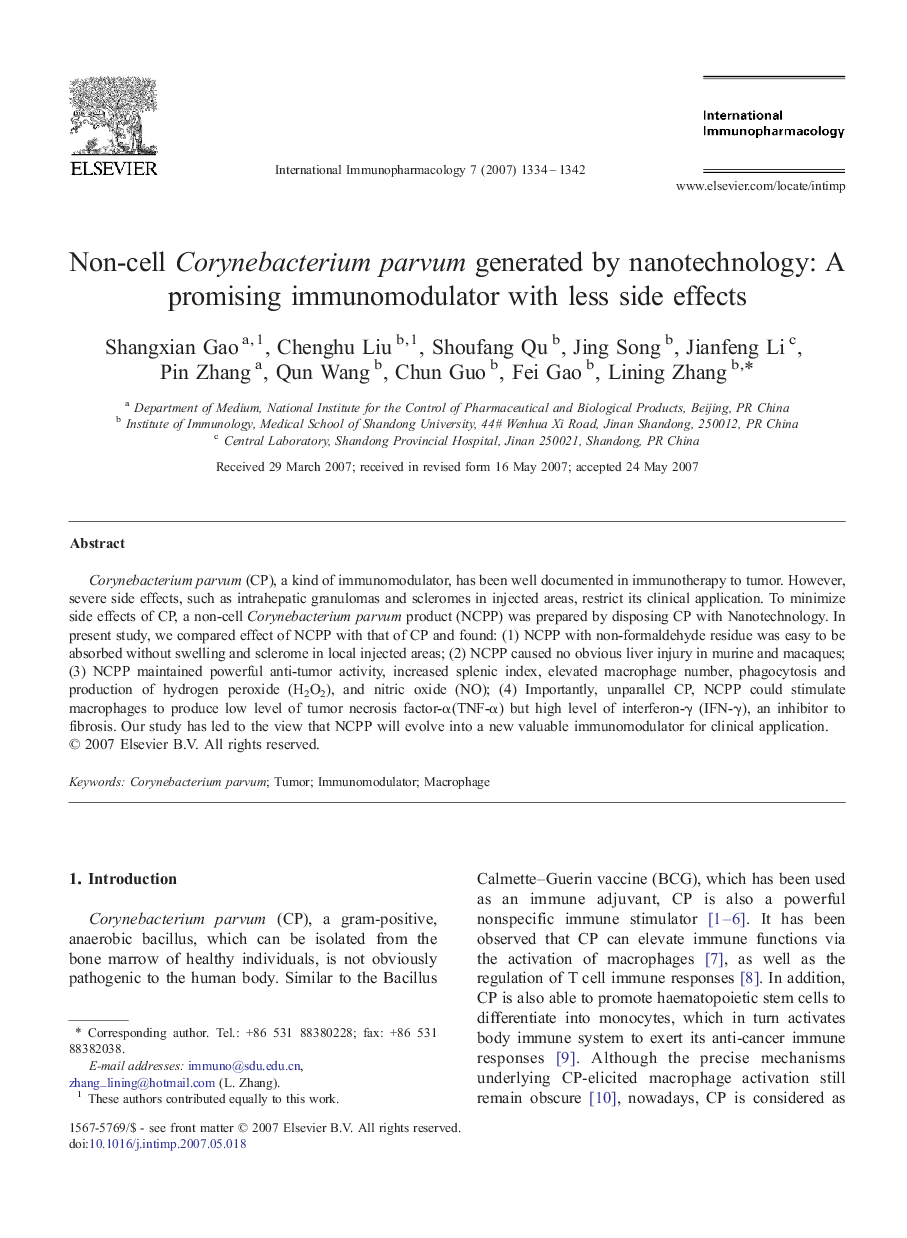| Article ID | Journal | Published Year | Pages | File Type |
|---|---|---|---|---|
| 2542541 | International Immunopharmacology | 2007 | 9 Pages |
Corynebacterium parvum (CP), a kind of immunomodulator, has been well documented in immunotherapy to tumor. However, severe side effects, such as intrahepatic granulomas and scleromes in injected areas, restrict its clinical application. To minimize side effects of CP, a non-cell Corynebacterium parvum product (NCPP) was prepared by disposing CP with Nanotechnology. In present study, we compared effect of NCPP with that of CP and found: (1) NCPP with non-formaldehyde residue was easy to be absorbed without swelling and sclerome in local injected areas; (2) NCPP caused no obvious liver injury in murine and macaques; (3) NCPP maintained powerful anti-tumor activity, increased splenic index, elevated macrophage number, phagocytosis and production of hydrogen peroxide (H2O2), and nitric oxide (NO); (4) Importantly, unparallel CP, NCPP could stimulate macrophages to produce low level of tumor necrosis factor-α(TNF-α) but high level of interferon-γ (IFN-γ), an inhibitor to fibrosis. Our study has led to the view that NCPP will evolve into a new valuable immunomodulator for clinical application.
